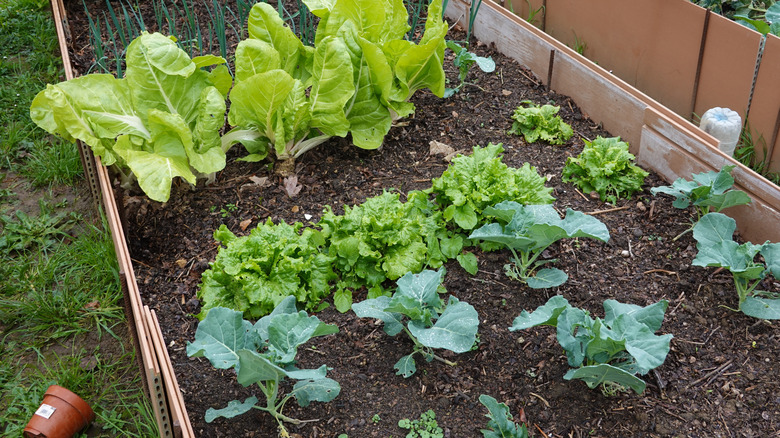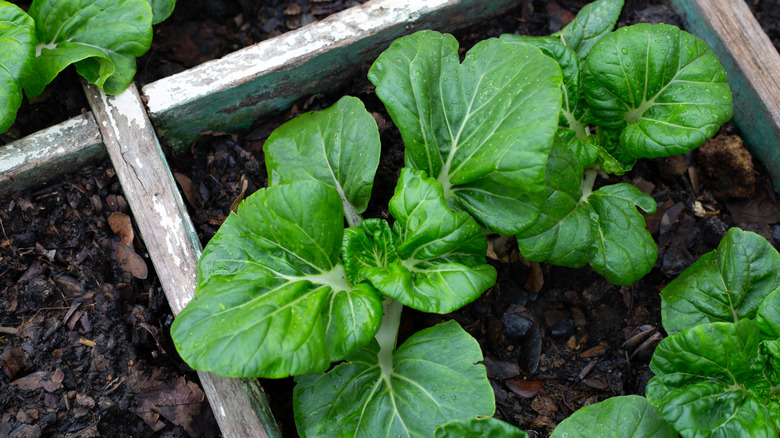Grow This Nutritious Cabbage Relative For An Easy Cold Crop
While summer may be the time of year most associated with bountiful gardens, it's not the best season for all crops. In fact, there are some tasty vegetables that thrive during the colder "shoulder" seasons of spring and fall. One of the best options for these chillier times of years is the delicious, nutritious bok choy (Brassica rapa sp. chinensis L.). Bok choy is in the same genus as cool-season garden classics like cabbage and Brussels sprouts, and is arguably even easier to grow.
This cruciferous veggie grows best when temperatures are cool, ideally between 55 and 75 degrees Fahrenheit. This makes it ideal for autumn and spring in many areas and even a good winter crop in southern gardens. Long a staple in Asian cooking and a star in stir fries, bok choy is easy to clean and prepare, making it a snap to take it from the garden to your table.
Bok choy thrives in full to part sun gardens and appreciates well-draining and fertile soil. It grows well from seed and can even be directly sown, saving you the trouble of transplanting. Just be sure to stay on top of watering your plants at least once a week if you don't receive regular rain.
Bok choy cultivars and growing methods
There are a wide range of bok choy cultivars available through online seed retailers, so finding the best variety for your growing conditions and taste preferences shouldn't be too challenging. 'Joi-Choi' is one popular option, as it is both tolerant of colder temperatures and also slower to bolt, even in warmer weather. The same can be said for the 'Mei Qing Choi' variety, making it a versatile option, perfect for areas with unpredictable weather. Another great cultivar to consider is 'Fen Jen.' This heat-tolerant option excellent germination rates and boasts beautiful frilled leaves.
Garden beds aren't the only place you can grow bok choy, as you can also plant it in raised beds and container gardens without issue. Like many leafy greens, bok choy is an excellent plant for small containers, and can easily thrive in a 1-gallon pot. It even takes well to hydroponic growing methods. If you don't have a hydroponic tower, you could try a fun DIY and reuse pool noodles to make your own hydroponic garden.

